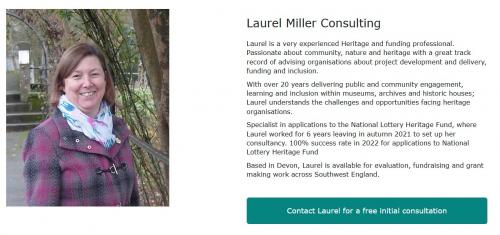Laurel's Blog
Fluidity, flux and liminality, a life lived in the edge
“I don’t like to be perceived.” All those challenges at school, preferring to sit alongside, appearing on zoom calls at the very edge of the screen, the intense dislike of being looked at; understood in an instant.
The words chimed strongly with the biography I have been reading of Claude Cahun and Marcel Moore, “Never Anyone but You” by Rupert Thomson. Claude was a brilliant gem, multi-faceted, full of dazzle and glamour impossible to perceive.
Did she too not want to be perceived, labelled, tied to one version of herself. Were her shapeshifting transitions a disguise or the most authentic expression of her being?

I first heard about Marcel and Claude on the “History’s Secret Heroes” podcast - narrated by Helena Bonham Carter, which told the story of their extraordinary acts of resistance in occupied Jersey, first broadcast in 2023. Something about their story made me determine to know them better.
Their resistance to the German occupation is the “way in” to their stories for many, but their lives in Avant Garde Paris, their work as artists and their relationship provide a more complete narrative and give their actions in Jersey a depth of understanding.

Their compassion for the slave labourers, their relentless campaign to undermine the morale of occupying forces and their risk-taking behaviour stood out in stark contrast to the quiet complicity of the majority. In the interests of “moving forward” and “civic harmony” these acts, their arrest and death sentence were allowed to be forgotten, even within their lifetimes.
I notice some differences between the book I am reading and the memories of the podcast I heard 2 years ago – curious, I explore online. I was delighted to find images of Claude and Marcel, many of which had been described in the book, but disappointed that the captions are prosaic and mundane, doing a disservice to the intentionality and multi-layered references woven into them by the sitter and photographer – they are art, not holiday snaps.
I find different versions of their story and of them; introverts, eccentrics, recluses; sisters, lovers, friends. Inaccuracies or discord would usually annoying me, but the different versions of both their story and themselves feel entirely appropriate and as they would have wanted. They lived in the “House with no name” and signed their anti-German newsletters from the “Soldier without a name”. I have deliberately referred to them throughout as Claude and Marcel, the names they chose for themselves as artists, not their given names. Chosen names, gender fluidity, same sex partners –they also remind me of the non-binary, agender and transgender people I know, many of whom are also neurodivergent. I wonder if neurodivergent is an aspect of their identities.
I reflect on our times, the efforts of the many people I know to “rediscover” forgotten histories. The passion to look beyond actions to see the identity of the whole person – lesbian, Jewish, gender fluid, neurodivergent. The attempts to make the history collected and shared today more representative, to stop these important parts of our history from being allowed to be forgotten.
I also see the visceral reaction and fear that comes from those who oppose this “rewriting of history” who cling to the comfort of the history they learned at school. Their attempts to control our history through the removal of funding, banning of books and a relentlessly negative media campaign.
The truth is that history is as multi-faceted, full of dazzle and glamour as Claude. It flexes in response to our perceptions; it is fluid and never fixed.
laurelmi

A small act of resistance and subversion – my personal tribute to Marcel and Claude.
I will continue to support and show allyship with all people seeking to bring histories into the light. I take great pleasure in working with and fundraising for organisations that challenge the heritage sector to be better and in doing so enhance all our histories.
If you want to speak to me about your work, I am happy to listen and provide free advice on fundraising and networking.
